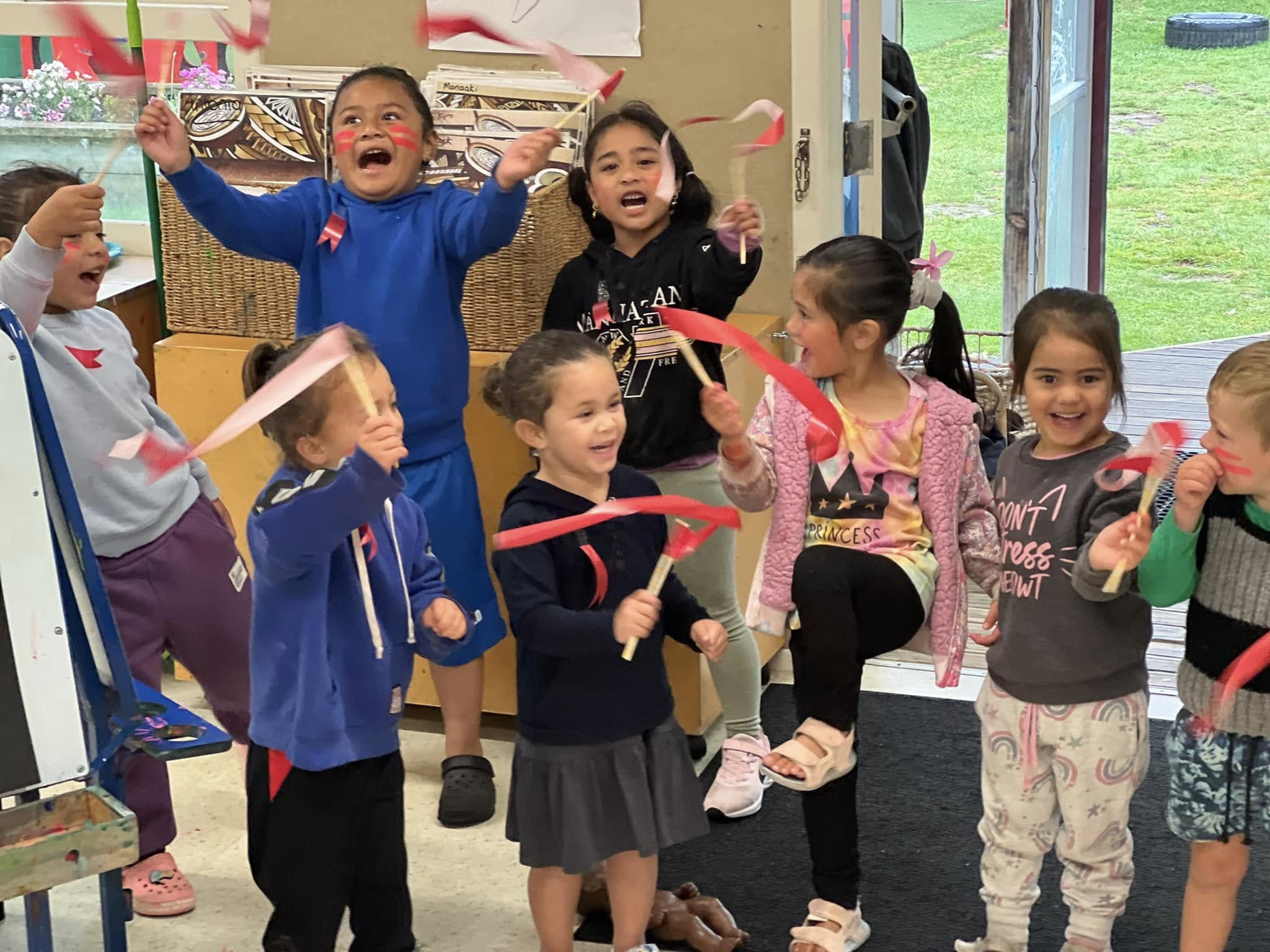-
Mō mātou About Us
-
Pārongo matua Parent Info
-
Piri'anga Alofa Community Services
-
Ngā auaha Innovations
-
Ngā tūranga mō wātea Work for Us
-
Ngā kārere NewsAll North Island Kindergartens Closed Today Due to Extreme Weather Submission on the Education and Training Amendment Bill Kōriporipo Report Partnership to Provide Free Hearing and Vision Testing Government undermines early childhood education, ignoring parents and the sector Community Health Event in Palmerston North Le Fale Jobs and Skills Hub Porirua Employers Event Whānau Pānui August Edition Now Available Consultation on Licensing Criteria Changes to Family Boost Scheme Labour MP's Visit Masterton West Kindergarten Kindergartens Stand Strong for NZEI Te Riu Roa Day of Action Nau mai, haere mai KidzWay Kindergarten! Wellington Central MP Tamatha Paul visits Campbell Kindergarten Concerns Raised over Early Childhood Funding Review MP Suze Redmayne Visits Kimbolton Kindergarten Whānau Manaaki Kindergartens Support Pay Equity Inquiry Calling on PM to Back Quality Early Childhood Education Effective Cut to ECE funding in Budget 2025 Kindergartens visit MP Offices with NZEI Petition Supporting Kindergarten Families with Essential Items in Porirua Statement By Whānau Manaaki Regarding Te Tiriti o Waitangi Kindergartens Support Te Tiriti
- Search
- Contact Us
- Find a Kindergarten
- Navigation
- About Us Our Values Our Structure Our People The Board Annual Reports Policies Kindergartens Aotearoa
- Parent Info Our Kindergartens Information for Whānau Fees and Contributions Get Involved Whānau Newsletters Register your Interest
- Community Services Community Navigation Service Le Fale Jobs and Skills Hub Etu Ao
- Innovations E Tū Kaha | Stand up Strong Pacific Kindergartens Arohanui Kindergarten Tai Tamariki Kindergarten Celebrations Whakanuia 120 Year Jubilee Whanganui Equity and Well Being Profile Te Tohu Urupare KOWHEORI-19 | COVID-19 Response Recognition Award Whānau Manaaki Publishes Pacific Language Children's Book
- Work for Us Why Work for Us? Application Requirements Vacancies
- News All North Island Kindergartens Closed Today Due to Extreme Weather Submission on the Education and Training Amendment Bill Kōriporipo Report Partnership to Provide Free Hearing and Vision Testing Government undermines early childhood education, ignoring parents and the sector Community Health Event in Palmerston North Le Fale Jobs and Skills Hub Porirua Employers Event Whānau Pānui August Edition Now Available Consultation on Licensing Criteria Changes to Family Boost Scheme Labour MP's Visit Masterton West Kindergarten Kindergartens Stand Strong for NZEI Te Riu Roa Day of Action Nau mai, haere mai KidzWay Kindergarten! Wellington Central MP Tamatha Paul visits Campbell Kindergarten Concerns Raised over Early Childhood Funding Review MP Suze Redmayne Visits Kimbolton Kindergarten Whānau Manaaki Kindergartens Support Pay Equity Inquiry Calling on PM to Back Quality Early Childhood Education Effective Cut to ECE funding in Budget 2025 Kindergartens visit MP Offices with NZEI Petition Supporting Kindergarten Families with Essential Items in Porirua Statement By Whānau Manaaki Regarding Te Tiriti o Waitangi Kindergartens Support Te Tiriti
ERO Commend Whānau Manaaki Services
Published on Jan 24

Search WM kindergartens

The Education Review Office has now published its report on Whānau Manaaki’s services, finding that our services are above the threshold for quality and that good practice is embedded in our services.
The ERO team evaluation took place between July and September last year and included visits to 19 services as well as extensive discussion with senior leaders and examination of documentation and systems.
Comments in the ERO report about the visits to services include:
“Pacific services ... highly respect, value and respond to family and community and their aspirations. Children …experience a localised curriculum that promotes Pacific language revitalisation well and meaningfully integrates Pacific ways of knowing, being and doing.”
